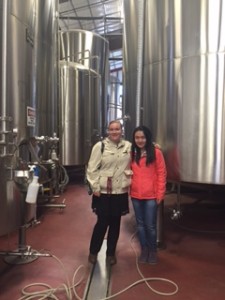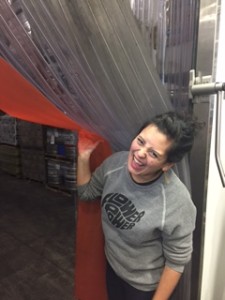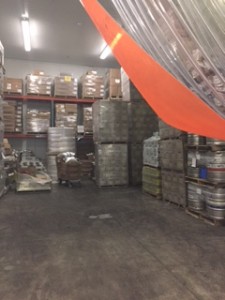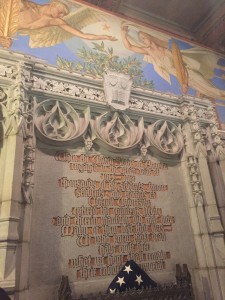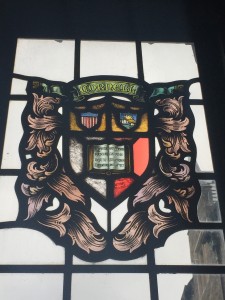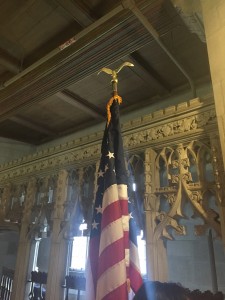This was my first Saturday Rose House event outside of campus and it felt really nice getting off campus even if just for a couple of hours. We went to the Ithaca Brewery and had a tour and a tasting of their beer. I did not know much about the process of making beer, and so it was fascinating to have a look inside the factory. However, I do think the group was a bit too large and I noticed it was unfortunately hard to hear everything that the guide said due to this. So, I do not know exactly how beer is made even after the tour, but even so it was fun to have a look around and see the huge containers for the beer. This is a picture of me and my friend Kelly in front of the containers, to give you an idea of just how big they were:
And this is a picture of our very happy guide:
We also looked at their storage and of the way that they package the beer. Apparently, if something goes wrong with the way they fill the bottles, so there is either too much or too little beer in the bottles, the workers get to keep the beer for themselves!
This is a picture of where they store the beer:
Interestingly, the beer can be stored in a cold room and then go on a truck that is relatively warm and then be cooled down yet again without any damage to the taste! Apparently, you can do this heating and cooling process up to five times without the beer tasting any different. We also learnt that the idea that beer must be served ice cold is a way for companies to make up for their lack of quality beer. When beer gets to room temperature more of the flavors and undertones come out, and so if the beer is no good it would benefit the producers if the customers thought that they should consume the beer when it was still really cold.
At the end of the tour we got to taste beer as well as a non-alcoholic drink. And while I hate to say this, I think I can conclude that beer really is not my thing. I could feel some nice undertones in it, but the strong taste of beer nevertheless drowned out most of them. I think beer might be an acquired taste really, and I have just never had the energy to get past my initial dislike for it in order to start enjoying it after some time. Also, when I was a kid, I had the misfortune of mixing up mine and my mom’s glasses and so I took a large sip of beer and I think that this experience, at such a young age, might have sadly traumatized me for life and made it impossible for me to truly enjoy beer. But who knows, maybe I will enjoy it one day?

